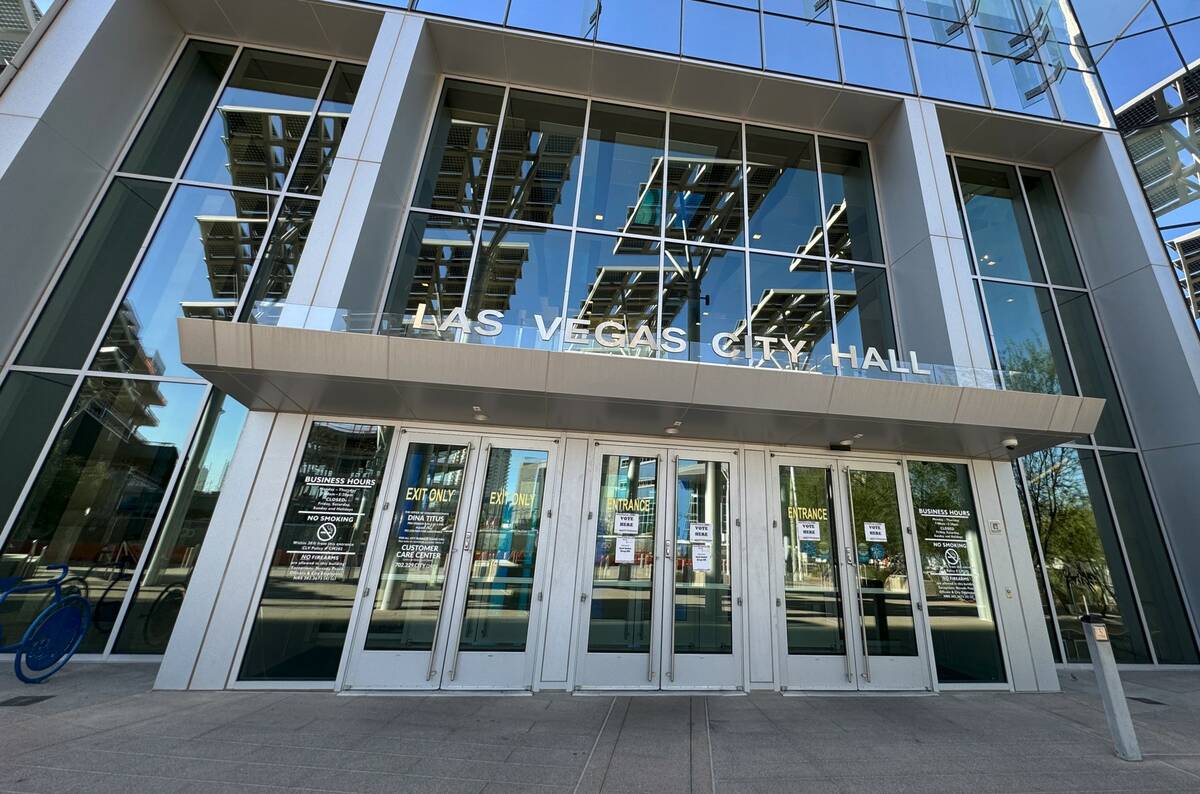Las Vegas confronts $110M budget deficit after Badlands losses
The Badlands settlement, a downward economic trend and increased contributions to city employee benefits are contributing to a projected two-year deficit of $110 million to Las Vegas’ general fund through fiscal year 2026, according to officials.
During a special public meeting Wednesday, the City Council voted unanimously to approve a roughly $853 million operational budget for the upcoming fiscal year, which begins July 1.
City Manager Mike Janssen said that the city’s reserves — which he categorized as being healthy — helped Las Vegas “weather the storm.” Reserves were being used to plug the deficit before the final budget is filed with the State of Nevada early next month, he noted.
Deficits
Fiscal year 2025 — which ends on June 30 — is expected to accrue a $85.3 million deficit. The city is projecting a $24.7 million shortfall for the upcoming year.
Because of that, the city is not expanding programs or adding general-fund positions in the coming year, said Janssen. He said the city’s top priority remains public safety.
Despite the challenges, Janssen told the Council, “The city of Las Vegas is fiscally sound. We’ve done a lot of good fiscal management where we’ve successfully navigated the Badlands settlement.”
He said the city didn’t have to conduct layoffs. “In fact, we’re hiring,” Janssen said.
Earlier this year, the city reached an agreement to pay developer CEO Yohan Lowie’s EHB Cos. $636 million to settle remaining lawsuits related to the defunct Badlands golf course.
EHB’s suits alleged that the city had “taken” the 250 acres by not allowing his to build an expansive housing project. Las Vegas flipped the property to Lennar Homes for $350 million and budgeted $286 to pay for the settlement.
The city paid $64 million last year to resolve a fourth lawsuit.
Consolidated Tax dips
Consolidated Tax, which includes fees collected by the DMV and certain sales taxes, contributes nearly half of the city’s general fund budget.
The city is expecting to raise $418 million in C-tax revenue through June, a 5.6 percent decrease from funds raised during fiscal year 2024, according to a report presented to the council.
Next year’s projection stands at about $424.3 million.
Government officials have described the C-tax as the city’s most volatile source of revenue.
Clark County reported a $56 million two-year deficit this week when commissioners voted on its proposed general fund budget. Officials there also cited a dip to the C-tax and an “economic slowdown.”
The city budgeted $2.33 billion to cover its seven funds for fiscal year 2026.
To maintain a high credit rating for bonds, Las Vegas is planning to keep its general fund reserve above 20 percent, said Janssen, noting that the city is targeting a 25 percent level, which “helped us navigate Badlands a lot easier than it would have been had we not been at that level.”
The city manager said the city continues to grow, noting that it was listed among the 15 fastest growing jurisdictions in the U.S., according to a recent U.S. Census report.
Janssen said the city issued about 2,000 housing permits over the last year, and about 3,400 business licenses.
Contact Ricardo Torres-Cortez at rtorres@reviewjournal.com Follow on X @rickytwrites.


















